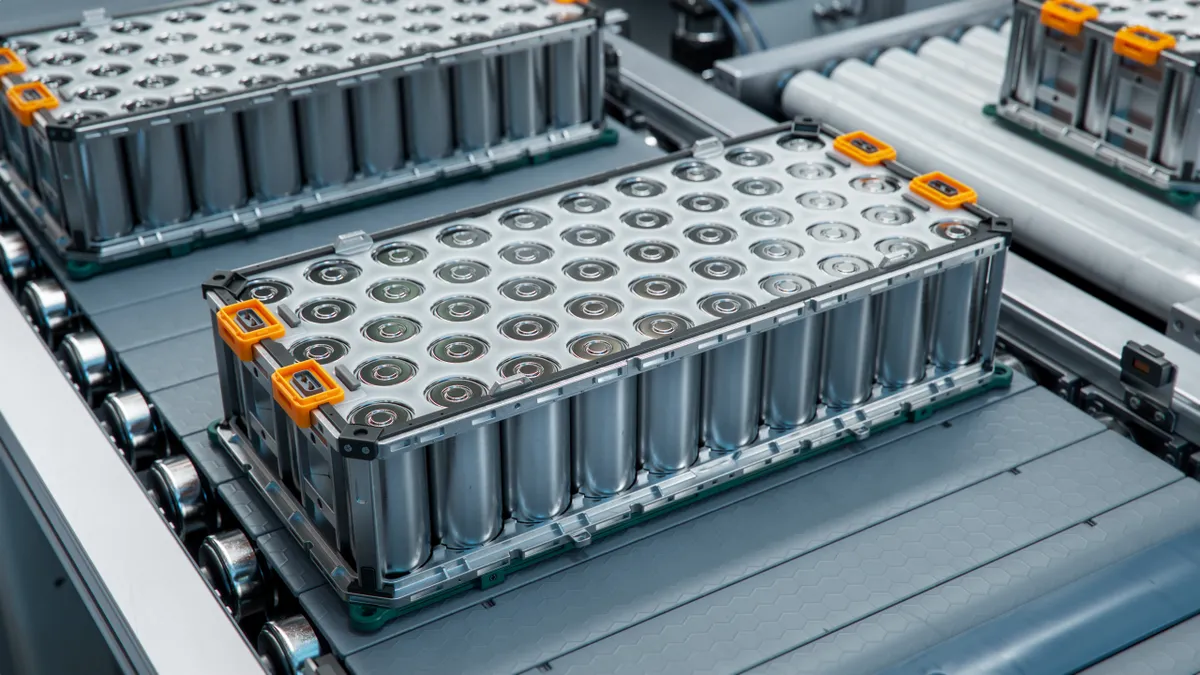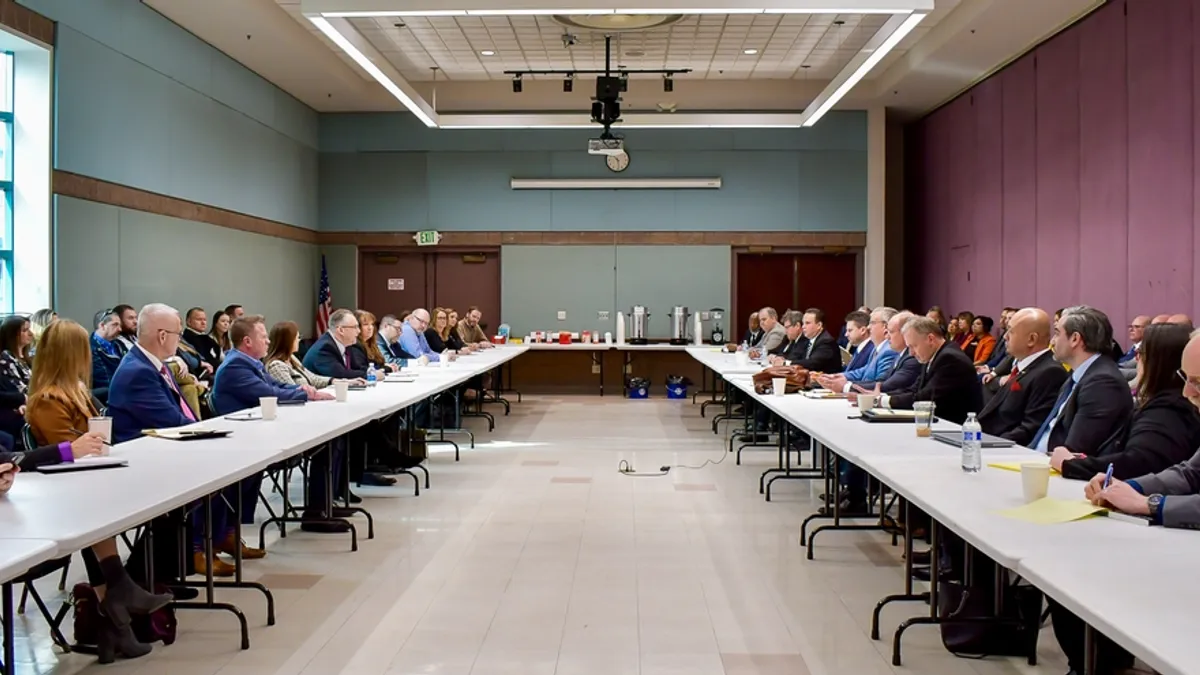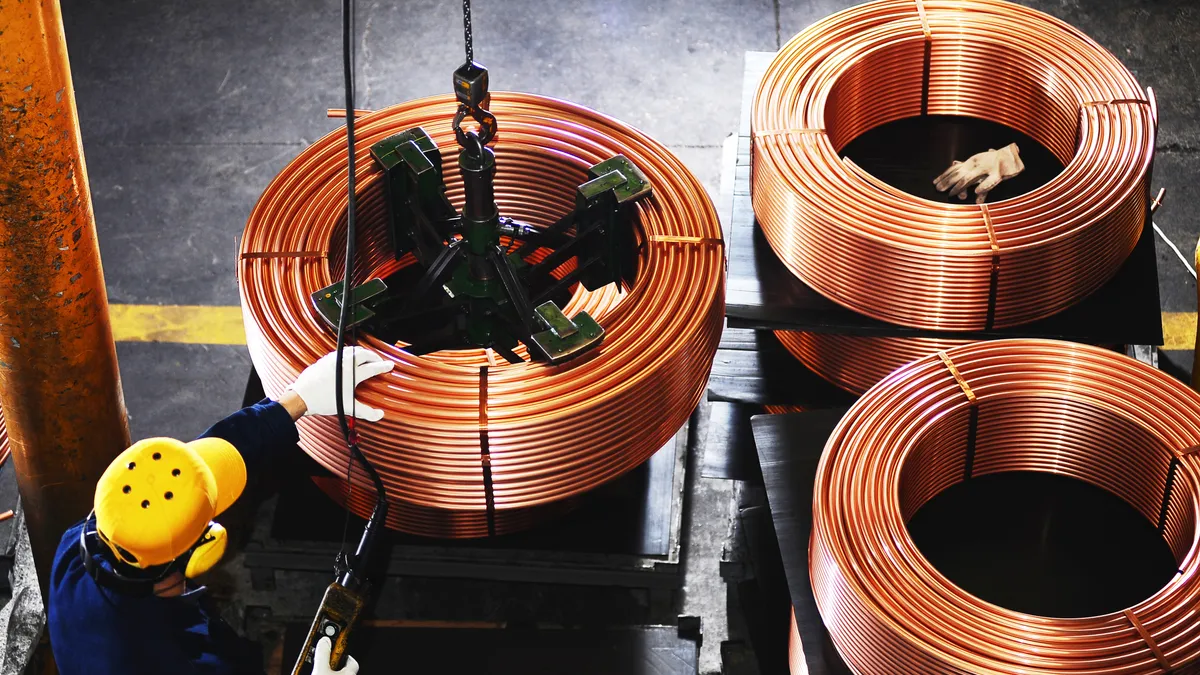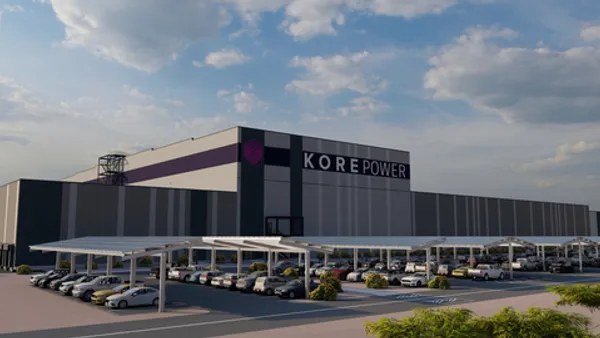Dive Brief:
- China-based battery component manufacturer Green New Energy Materials is building its first U.S. facility in Denver, North Carolina.
- The $140 million lithium-ion battery separator manufacturing facility will create 545 jobs, according to the state government press release.
- Founded in 2023, Green New Energy Materials sells battery components used in electric vehicles, energy storage and electric tools, with partners such as LG, Samsung, Tesla, Stellantis, Ford and AESC.
Dive Insight:
The newly established battery company will supply customers across North America.
“The United States has always been a key component of GNEM’s strategic plan of establishing clean energy supply chains worldwide,” Jay Zhu, general manager for Green New Energy Materials, said in a statement.
North Carolina is attracting recent investments from other foreign battery companies — for example, India-based Epsilon Advanced Materials will construct a $650 million synthetic graphite anode manufacturing facility this year outside of Wilmington. In November, Dai Nippon Printing Co., a Japan-based lithium-ion battery pouch manufacturer, also announced a $233 million investment to build its first U.S. advanced manufacturing facility in Davidson County.
China and its many EV and battery manufacturing companies remain top competitors in the clean energy space. Gotion is building a $2 billion Illinois battery plant set to open this year, and has another facility planned for Big Rapids, Michigan. Contemporary Amperex Technology Co., is also working to supply Ford’s $3.5 billion Michigan battery plant.
China also continues to outpace the U.S. in EV production and sales. China sold 1.9 million EVs while the U.S. sold 400,000 units in the first quarter of 2024, according to the International Energy Agency. China-based EV automaker BYD became the world leader in EV sales in Q4 2023, surpassing Tesla for the first time.
Yet with President Biden’s latest tariff hikes for China imports of up to 25% on lithium-ion and non-lithium-ion EV batteries, that story might change. Tariffs on EVs made in China also increased 100% this year, up from 25%.
The administration has long been pushing for companies to onshore not only EV and battery manufacturing, but to bring supply chains for lithium, graphite and other critical minerals closer to home.












